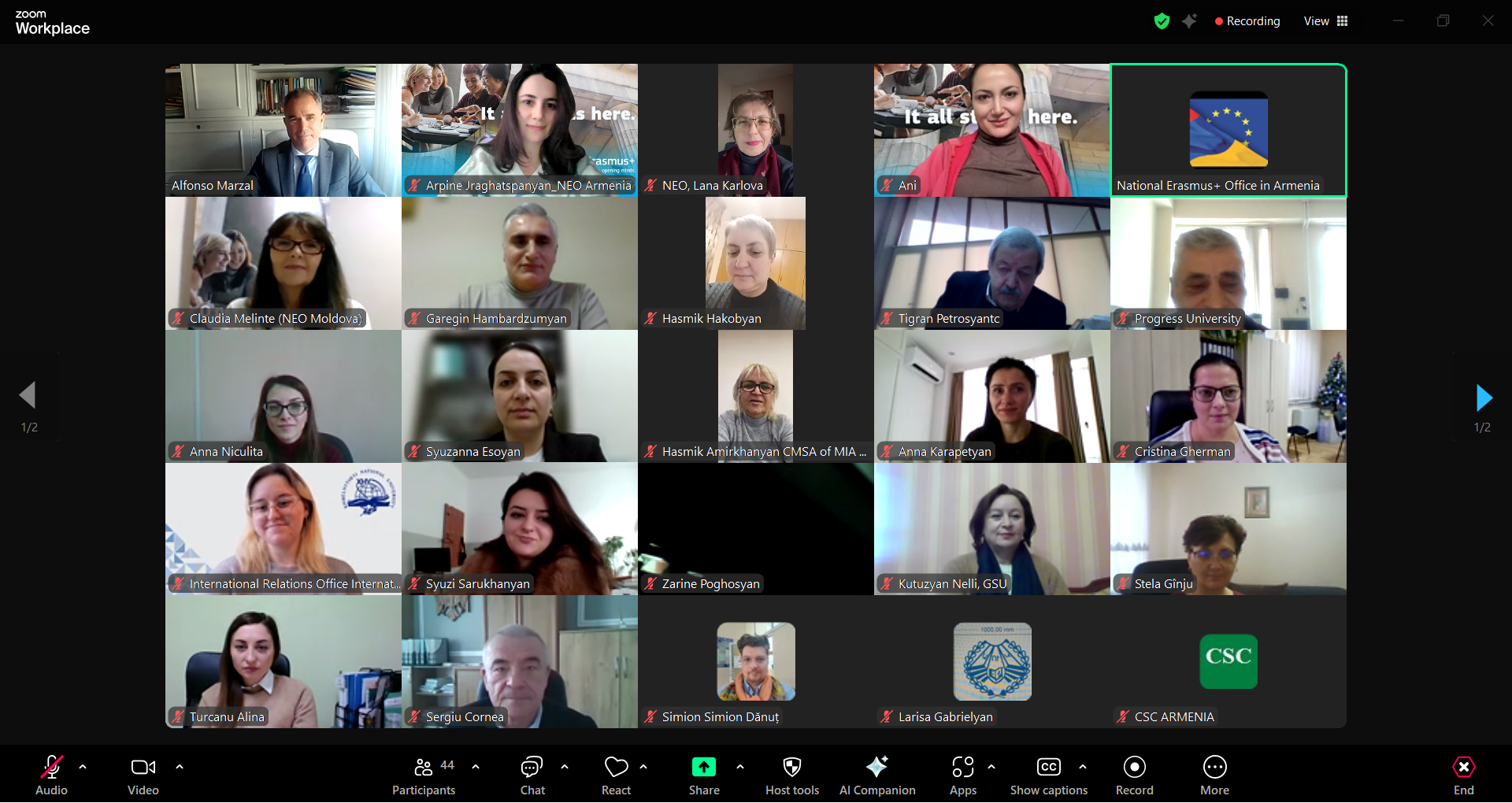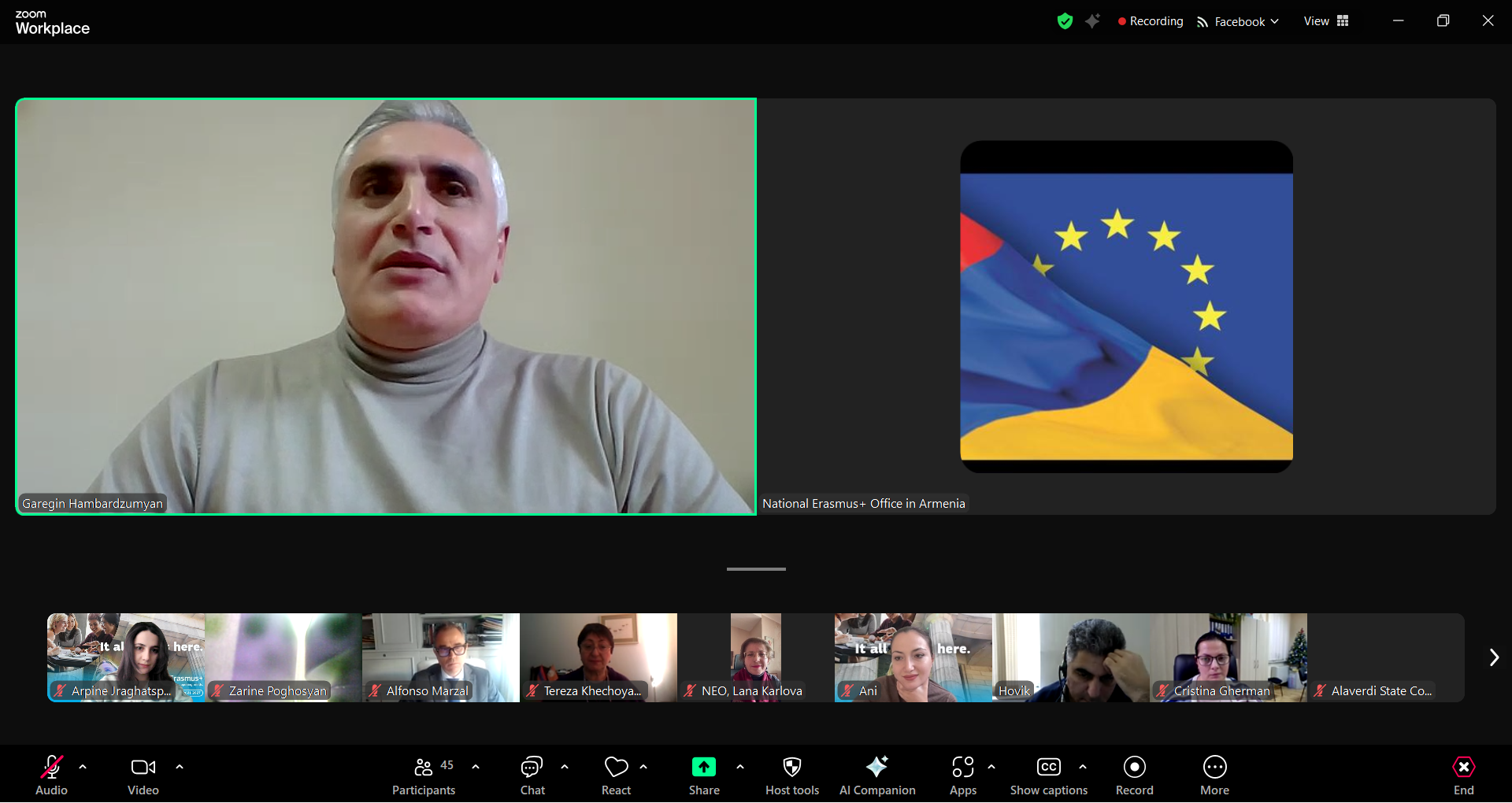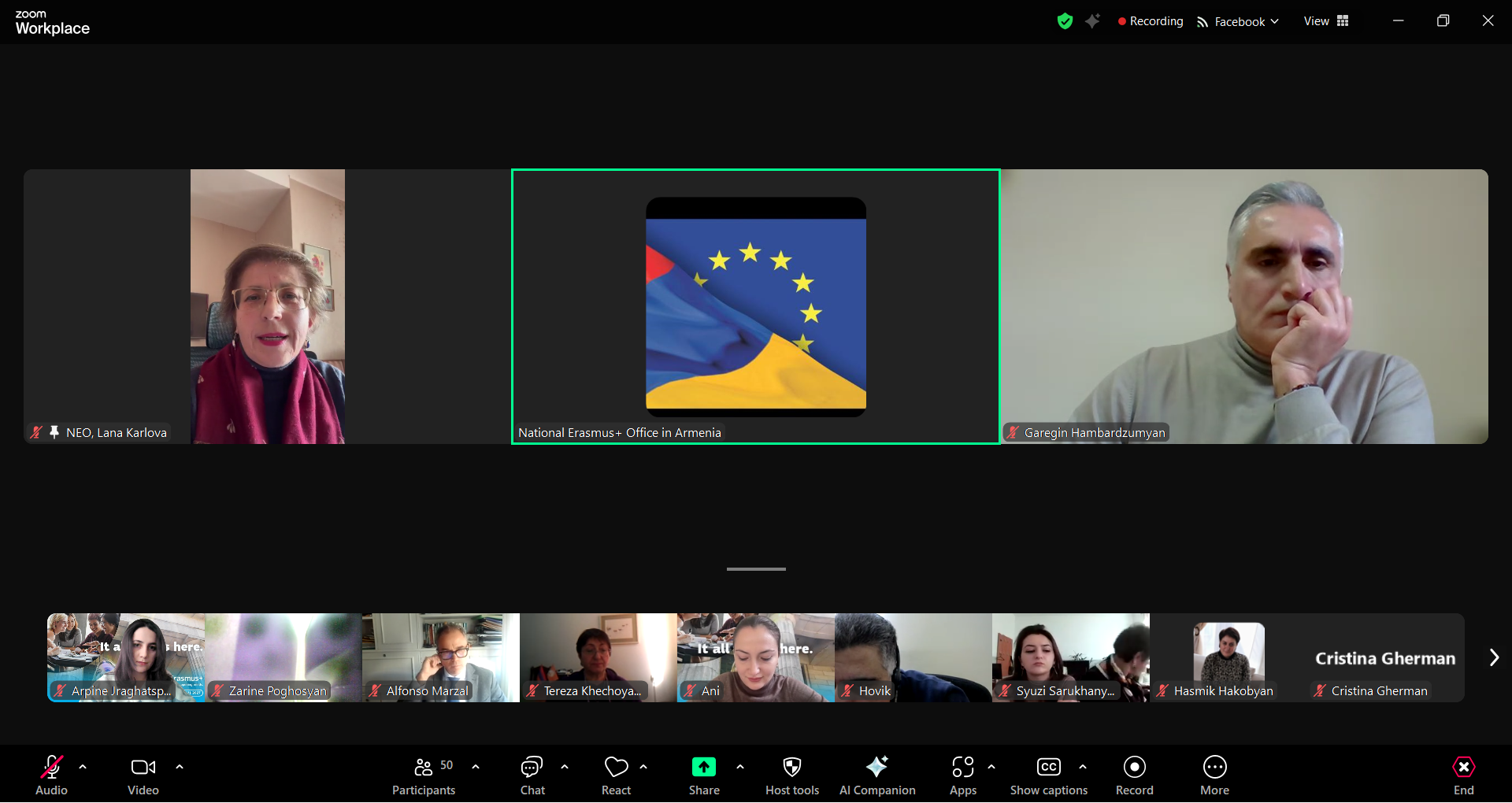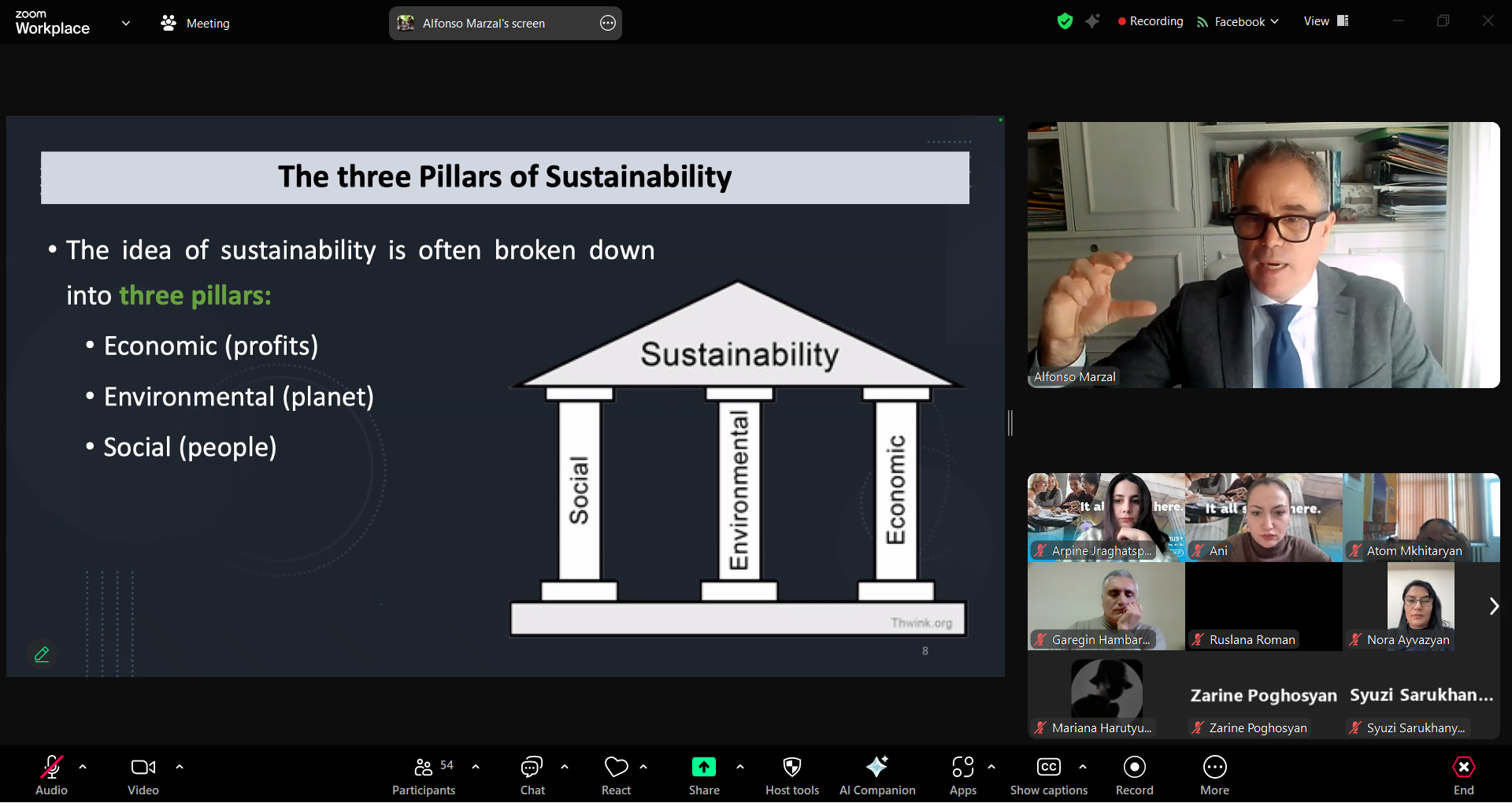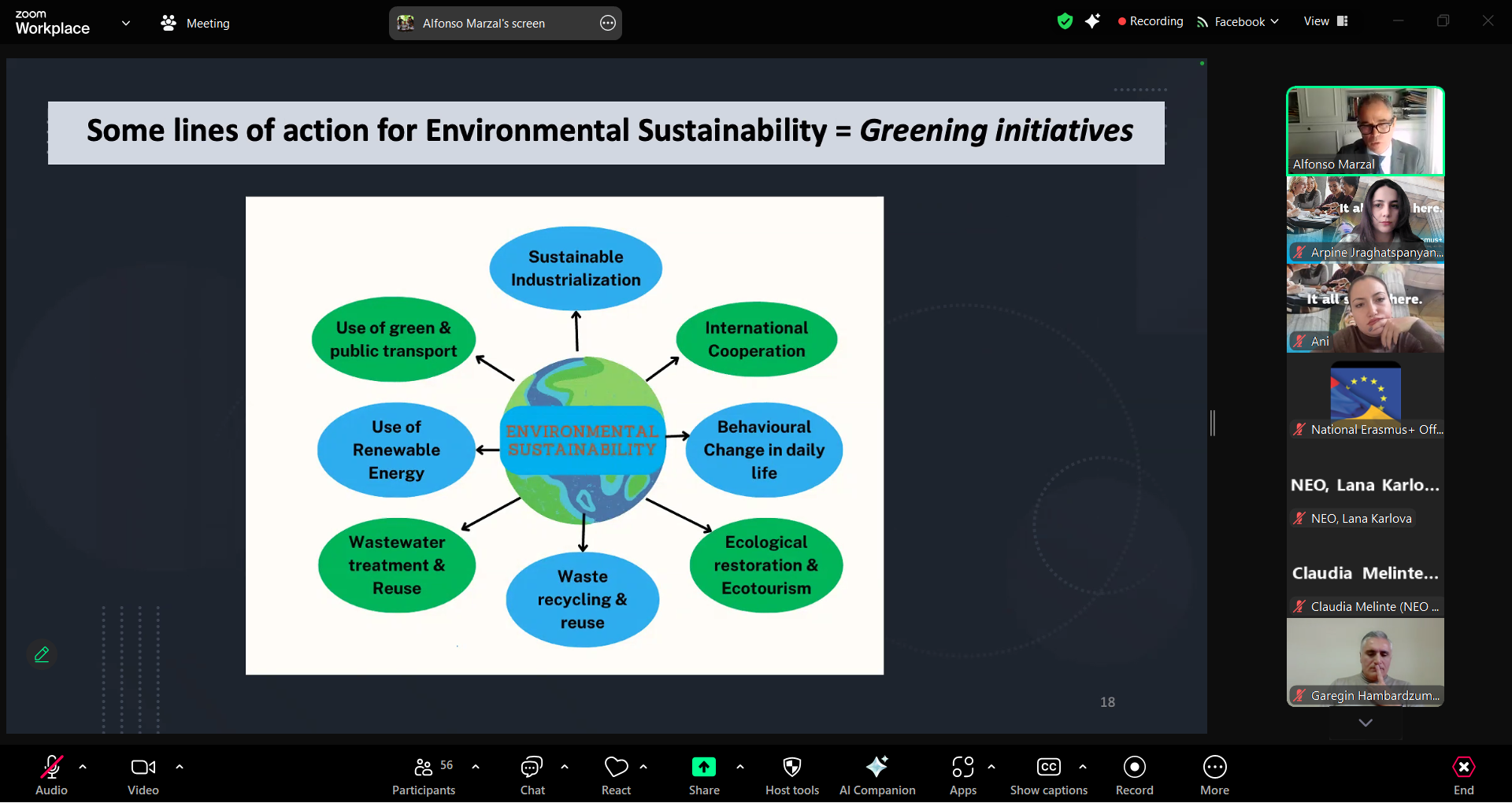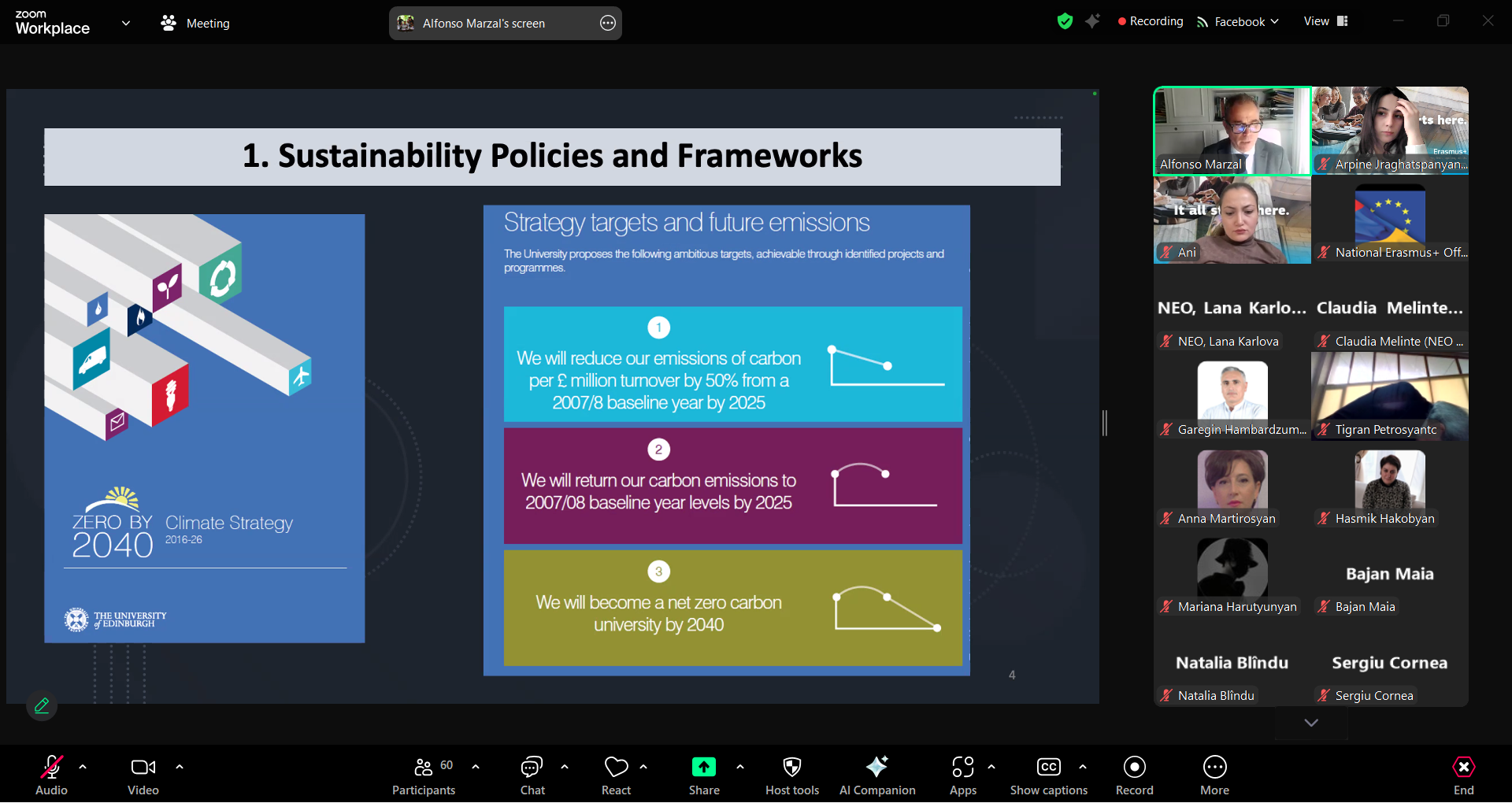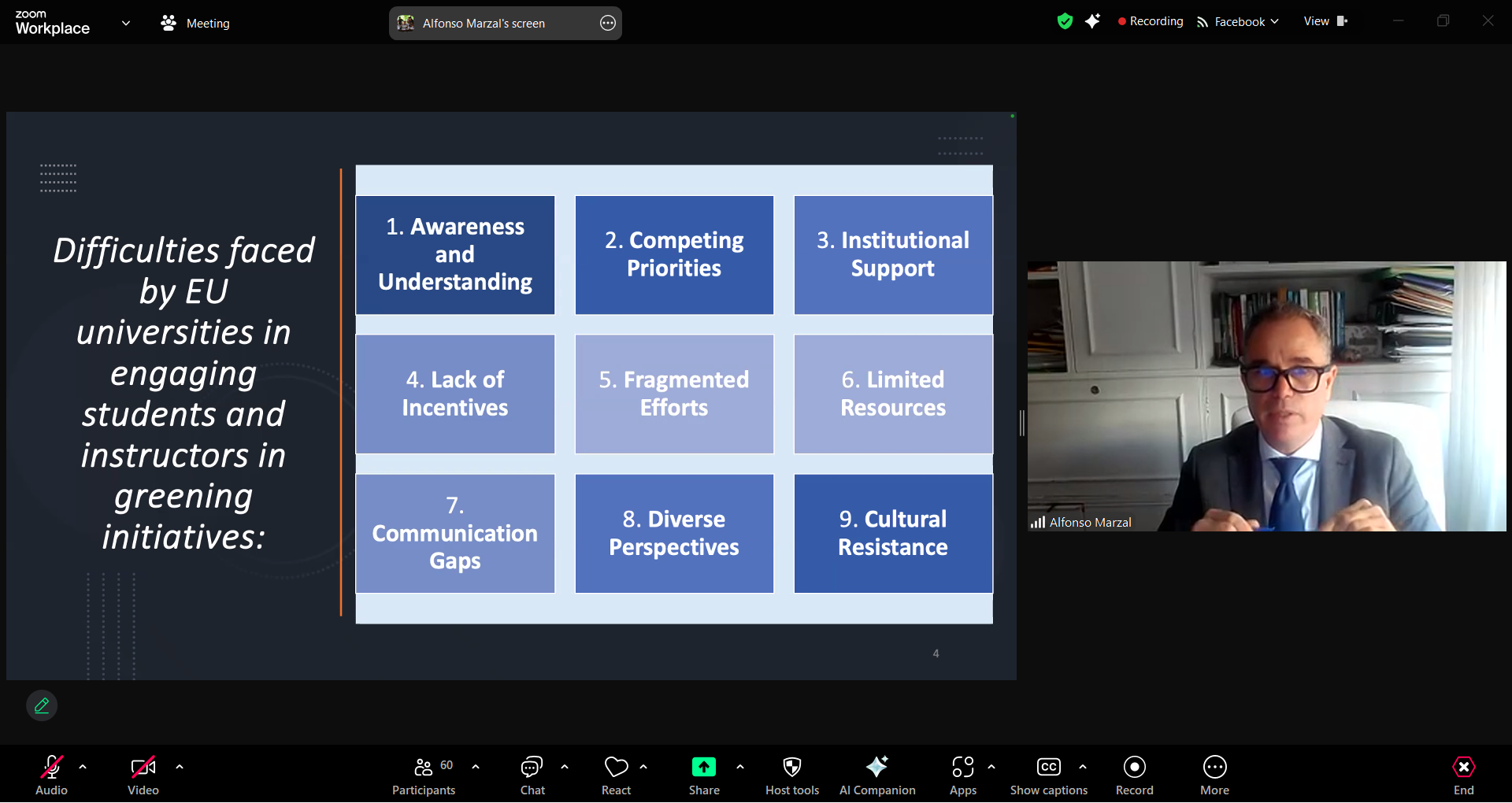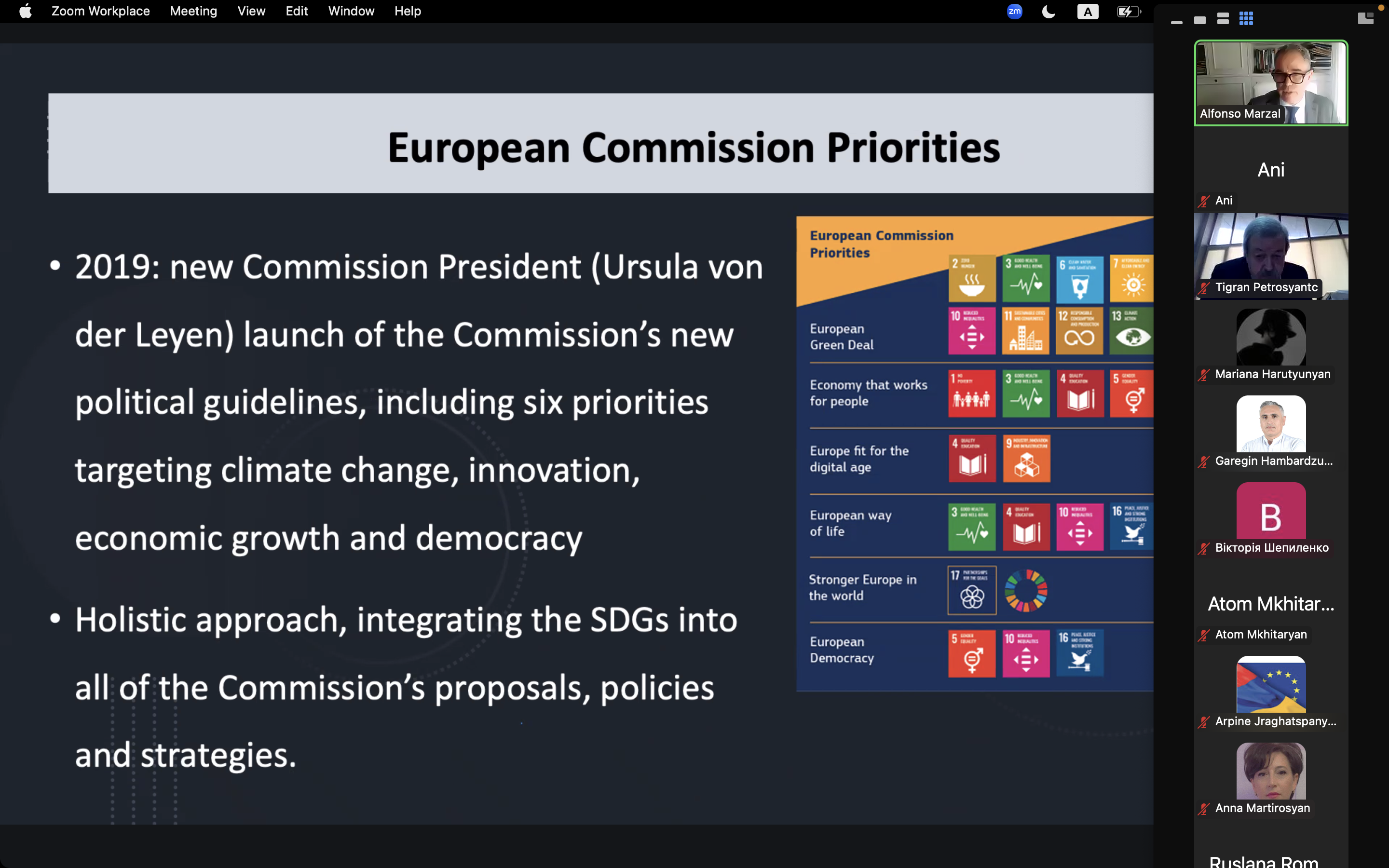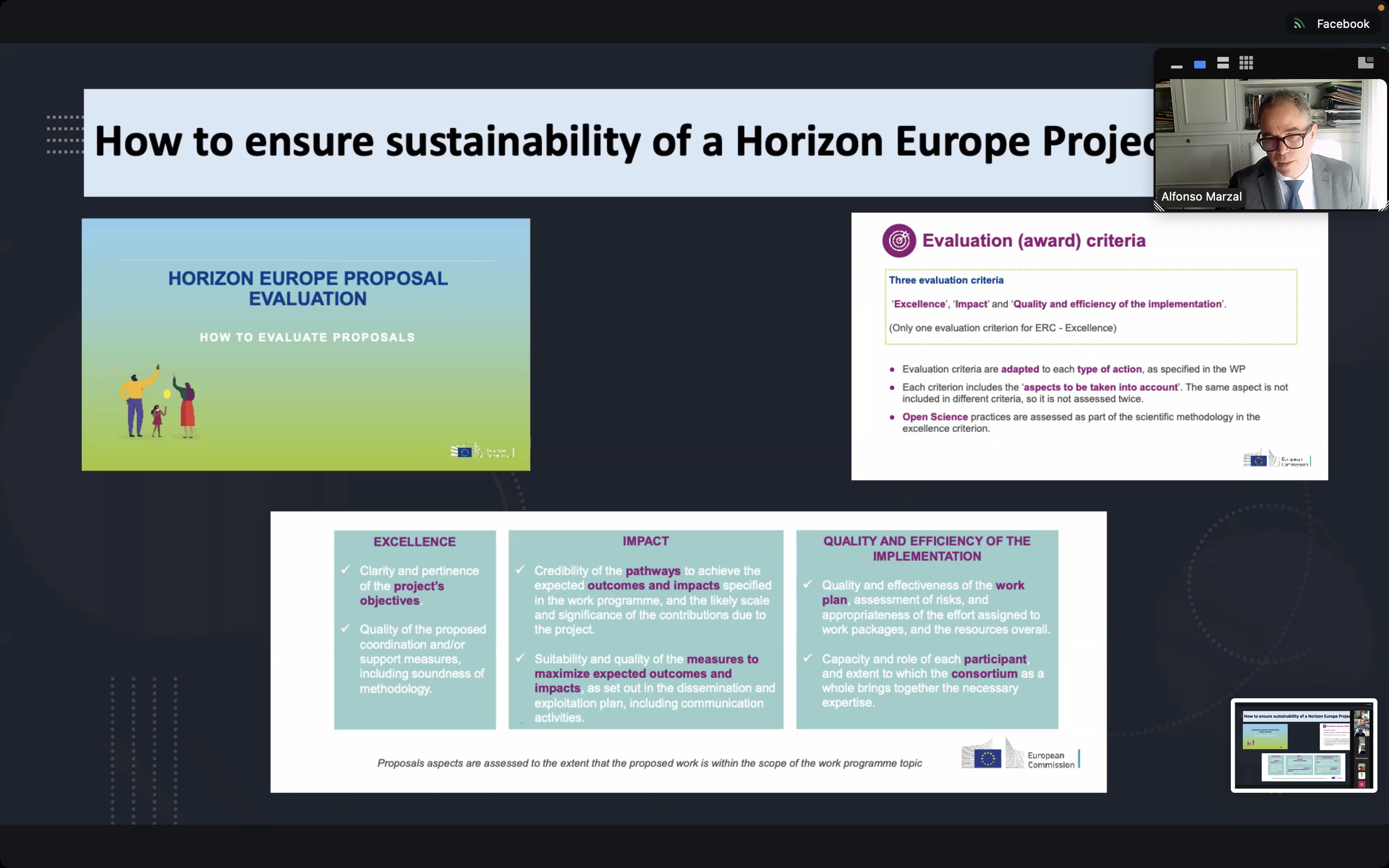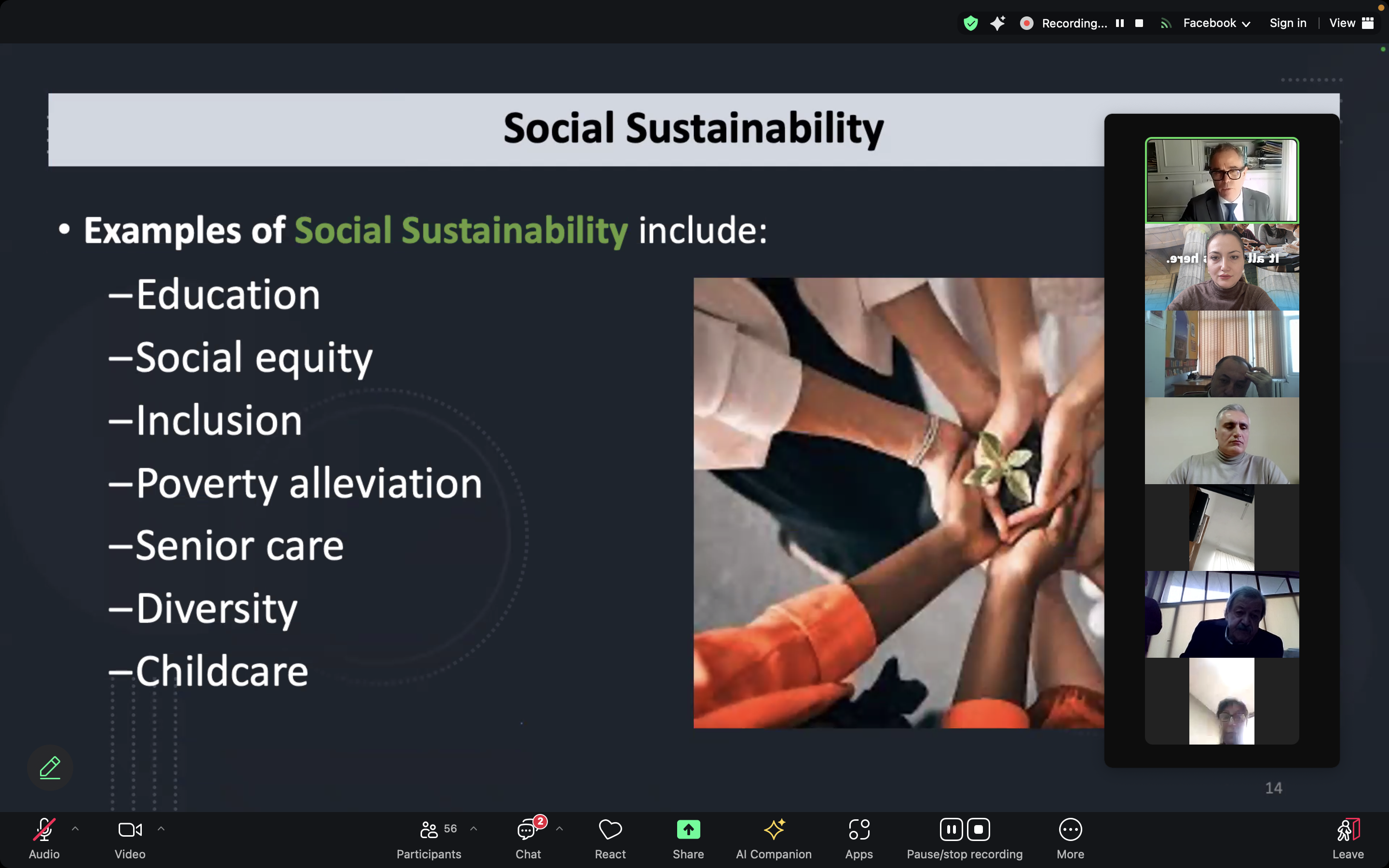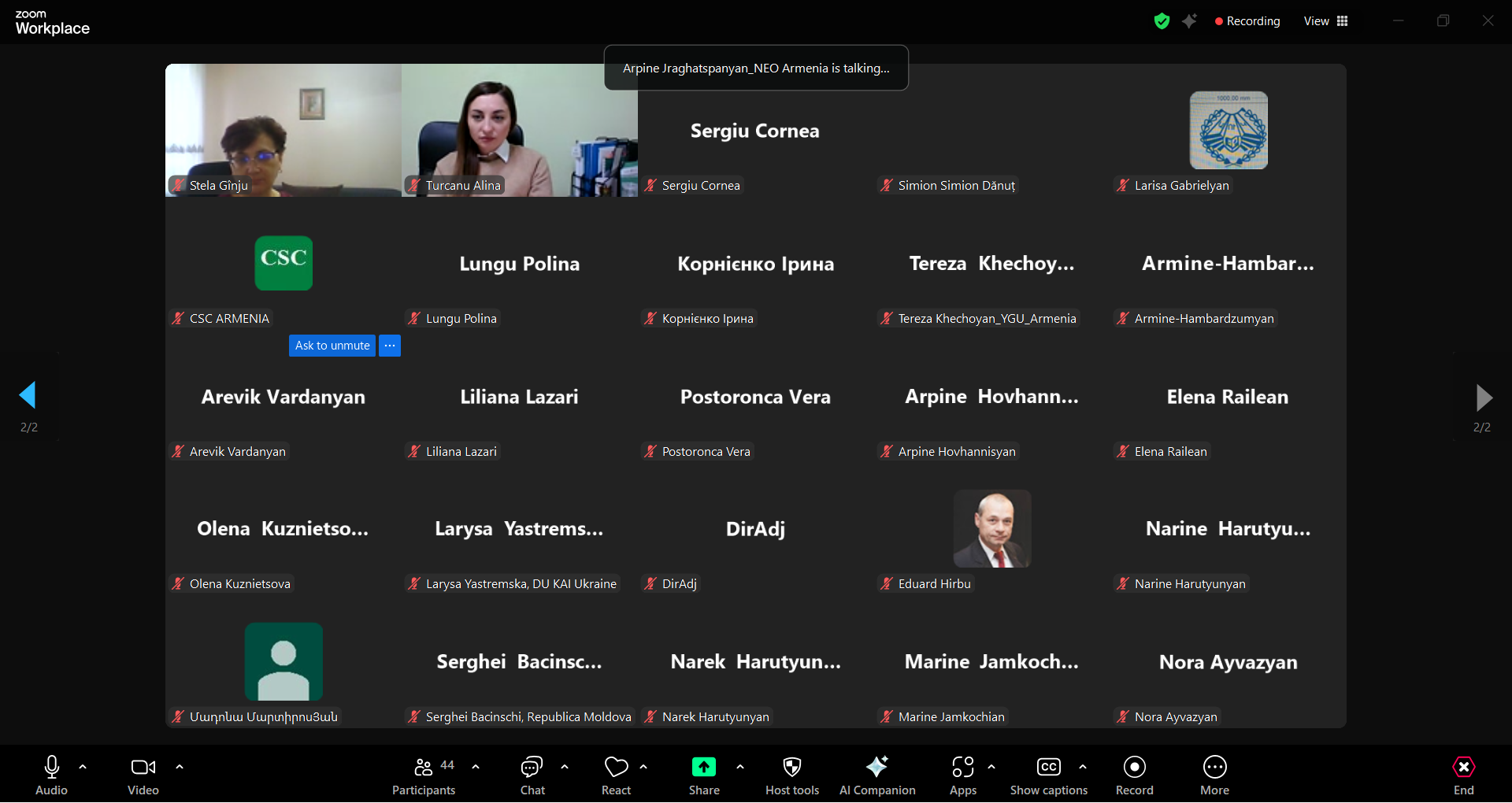“Towards ‘Green’ Education: Development of Competencies on ‘Green’ Universities in Armenia” Online Seminar was Held
On December 23, 2024, the seminar “Towards ‘Green’ Education: Development of Competencies on ‘Green’ Universities in Armenia” was held online. The event was attended by over 70 representatives from Armenian, Moldovan, and Ukrainian universities, contributing to the deepening of knowledge and skills related to initiatives on “green” education and sustainability, as well as highlighting the importance of regional cooperation in addressing sustainable development challenges.
The seminar was organized by the National Erasmus+ Office in Armenia, in collaboration with Higher Education Reform Expert (HERE) Garegin Hambardzumyan, as part of the Technical Assistance Missions. It aligned with the European Union’s Green Deal priorities and aimed to support ongoing and future Erasmus+ projects in Armenia.
Lana Karlova, Head of the National Erasmus+ Office in Armenia, opened the event by welcoming participants and outlining the seminar’s purpose. Garegin Hambardzumyan, Head of the International Relations Department at Armenian National Agrarian University (ANAU), emphasized the importance of integrating greening practices into Armenian universities, noting that sustainability encompasses much more than solar panels or curricula changes.
The event featured keynote speaker Dr. Alfonso Marzal Reynolds (biography) from the University of Extremadura, Spain, who shared his expertise on “green” education and sustainability practices in European universities. The seminar provided valuable insights into:
- Definition and Basic Principles of Sustainability and Greening:
-
- Explored sustainability’s foundational principles, including community, financial, business, organizational, and environmental sustainability.
- Emphasized the three pillars of sustainability: economic, social, and environmental.
- Greening in EU Higher Education Institutions:
-
- Presented strategies and approaches adopted by European universities: European universities have adopted various greening initiatives, such as sustainability policies, curriculum integration, and green campus infrastructure. For example, the Technical University of Delft has implemented green roofs, reducing energy costs while providing social benefits. The University of Copenhagen has promoted green mobility through shared bikes and electric car charging stations. In waste management, Aalto University follows a hierarchy to reduce waste generation, reuse, and recycle. Research initiatives like the UNESCO Chair at the University of Ljubljana aim to integrate sustainability into teacher education and community engagement.
- Challenges Faced by EU Universities:
-
- Discussed difficulties in engaging students, faculty, and local communities in greening initiatives, including limited awareness, curricular integration challenges, and resource constraints.
- Proposed strategies to overcome these challenges, such as raising awareness, integrating sustainability into curricula, and fostering community collaborations.
- EUGREEN: An Alliance of European Universities for Sustainability:
-
- Highlighted the EUGREEN alliance, uniting nine universities across 24 campuses to promote sustainability through education, research, and innovation.
- Showcased initiatives such as joint degrees, research clusters, and innovation hubs supporting the Sustainable Development Goals (SDGs).
Dr. Alfonso Marzal Reynolds concluded the event by reiterating the significance of “green” education as a cornerstone of sustainability. He also highlighted the EUGREEN project, which facilitates collaboration between European universities to advance education, research, and innovation in sustainability.
Several Erasmus+ projects aimed at promoting the Green Deal are already underway in Armenia, including T-GREEN, AFISHE, and RE-GRAD. These projects focus on fostering green education and generating innovative ideas for new Erasmus+ CBHE applications.
A comprehensive study on greening (The Greening of Higher Education in The Western Balkans, Neighbourhood East and South, and Central Asia Regions) conducted this year by SPHERE and working groups across four regions (Western Balkans, Eastern Partnership, Mediterranean, and Central Asia), provides valuable insights into sustainable practices and initiatives. The study is a crucial resource for understanding regional approaches to greening.
This event was yet another important step towards the dissemination of knowledge about sustainable and “green” education, the exchange of experience, as well as the creation and strengthening of ongoing collaborations.

